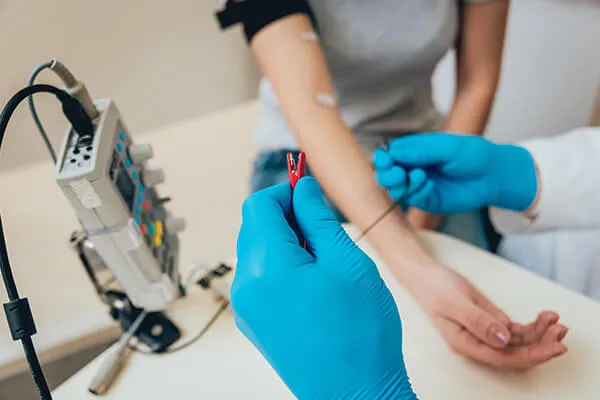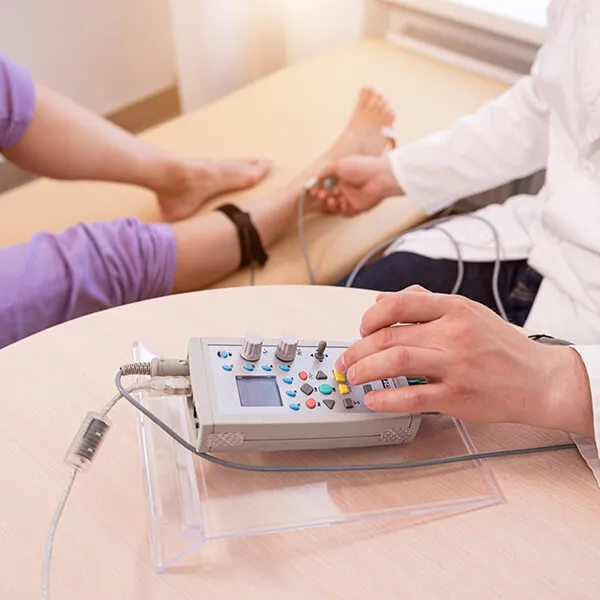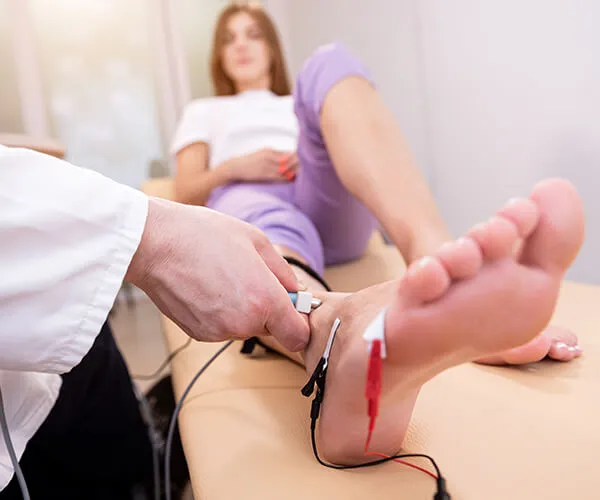

Notice: Coppell Office Moving Soon | New Address: 897 N MacArthur Blvd, Ste 110, Coppell, TX 75019
Electromyography (EMG) and nerve conduction study are diagnostic tests that assess the functionality of your muscles and the nerves controlling them. It primarily involves two essential EMG procedures:
EMG and NCS help diagnose nerve damage and muscle disorders and pinpoint where the problem might lie. It's like having an electrical check-up on your nerves and muscles! Electromyography lab provides accurate diagnostic testing for nerve and muscle conditions.
Experience relief with effective electrodiagnostic medicine in Coppell, Carrollton, Grapevine, TX, and surrounding areas. Our EMG specialist can accurately diagnose nerve and muscle conditions to help develop effective treatment plans.

Your physician might recommend an electromyography test if you exhibit symptoms suggestive of nerve or muscle disorders, such as:

Electrodiagnostic testing encompasses a broad spectrum of applications, serving both diagnostic and monitoring purposes for a range of conditions, including:
Additionally, electrodiagnostic tests play a crucial role in monitoring the recovery progress of certain patients’ post-diagnosis, offering valuable insights into their neuromuscular health and treatment efficacy.
Here's a breakdown of what happens during an EMG test:

Electrodiagnostic tests include numerous benefits, including:
Apex Interventional Pain & Spine is a leading healthcare facility dedicated to pain management, proudly serving Coppell, Carrollton, Grapevine, TX, and surrounding areas. Under the guidance of Dr. Mohammed I. Khan, a board-certified physician specializing in physical medicine, rehabilitation, and pain management, our team designs personalized treatment plans to expedite our patients' return to normalcy.
Our innovative pain management solutions, including electrodiagnostic tests, cater to various acute and chronic conditions, ensuring relief from discomfort and enabling our patients to lead fulfilling lives.
A few highlights of our exceptional services include:
Are you looking for "EMG testing near me" in Coppell, Carrollton, Grapevine, TX, and surrounding areas? Contact us today to schedule an appointment or to explore electromyographic and nerve conduction studies.